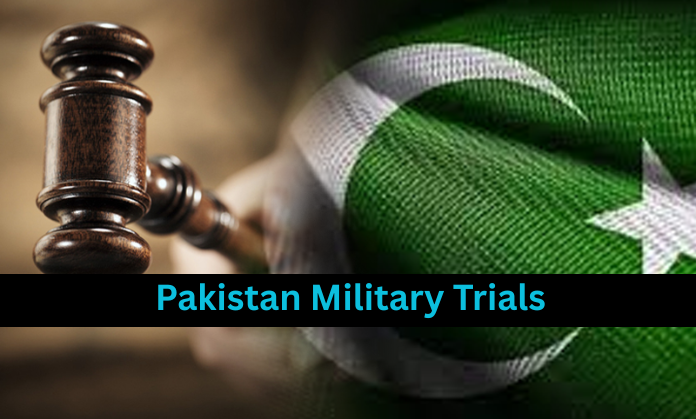Introduction
Pakistan and Saudi Arabia have expressed deep concern and strong condemnation over the recent United States airstrikes on Iran’s nuclear sites. The attacks, carried out under the pretext of neutralising potential threats from Iran’s nuclear program, have heightened tensions across an already volatile Middle East. The strikes have sparked a wave of international reactions and debates about sovereignty, security, and the role of military force in resolving global conflicts.
In a world grappling with rising tensions and growing mistrust, the condemnation by Islamabad and Riyadh signifies the urgency for restraint and dialogue. The message from both nations is clear — such acts of aggression only deepen divisions and risk triggering a wider crisis that could engulf the entire region.
Details of the US Strikes
According to official statements, the United States launched precision airstrikes on critical nuclear facilities in Iran, citing intelligence that suggested these sites were being used to further uranium enrichment efforts beyond the boundaries set by international agreements. The targets were strategically selected, focusing primarily on facilities suspected of advancing weapons-grade uranium production.
Washington justified its action as a necessary measure to protect its interests and those of its allies in the Middle East. The Pentagon stated that the strikes were conducted with utmost precision to minimise collateral damage. However, the Iranian government responded with strong condemnation, warning of serious retaliation and highlighting its right to self-defence.
These attacks mark one of the most significant escalations between the US and Iran in recent years. Against this backdrop, concerns about regional stability have surged, with many nations fearing that further military aggression could ignite a larger and more devastating conflict.
Pakistan’s Reaction
Pakistan was quick to respond, expressing grave concern over the airstrikes. The Ministry of Foreign Affairs in Islamabad issued a statement condemning the attacks as a breach of international law and a threat to the sovereignty of an independent nation. Pakistani authorities emphasised that such aggression only undermines global peace efforts and complicates the already fragile security situation in the Middle East.
Pakistan has long advocated for dialogue and mutual respect as the best path toward resolving conflicts. In its statement, the government urged all parties to exercise restraint and to adhere to international norms and protocols. The statement reaffirmed Pakistan’s commitment to promoting peace and stability in the region, underscoring its deep ties with the Middle Eastern nations and its role as a mediator in times of crisis.
Saudi Arabia’s Response
Saudi Arabia also expressed serious alarm over the airstrikes. The kingdom’s Foreign Ministry condemned the aggression, highlighting the threat it posed to regional peace and security. The statement from Riyadh called for an immediate halt to hostilities and advocated for a return to dialogue and negotiations as the only viable means to de-escalate tensions.
Saudi authorities emphasised the global repercussions of the attacks, warning that any further escalation could have profound impacts not only on the Middle East but also on the international energy market and global security. The kingdom reaffirmed its commitment to working with international and regional partners to foster dialogue and maintain stability across the Middle East.
Regional and Global Impact
The US airstrikes have triggered alarm across the Middle East and beyond, drawing a range of responses from global powers. Russia and China expressed strong disapproval, calling the attacks a violation of international sovereignty and warning about the possibility of a wider regional conflict. The European Union, while expressing concern over Iran’s nuclear program, also urged restraint and emphasised the urgent need for dialogue.
The attack has caused a sharp spike in oil prices and introduced further volatility in global energy markets. The Middle East, a critical hub for the global oil and gas supply, is a fragile environment where any disruption can have far-reaching effects. The possibility of a prolonged conflict threatens global economic stability and complicates efforts to maintain supply chains and secure energy reserves.
Moreover, the strikes have deepened divisions within the Middle East, straining relations between nations and making it more challenging for mediators to foster constructive dialogue. The attacks have also fuelled anti-American sentiment in certain quarters, complicating the US’ role and interests in the Middle East.
Implications for Pakistan and Saudi Arabia
For both Pakistan and Saudi Arabia, the strikes on Iran’s nuclear sites have serious implications. The two nations have long-standing economic, religious, and political connections with the Middle East, making regional stability vital to their interests. The attacks complicate their delicate balance of maintaining cordial relations with all stakeholders in the region, including Iran and the United States.
Pakistan, sharing a long border with Iran, faces a direct threat from any potential escalation. Its leadership is wary of a wider conflict that could spill over its borders, disrupt commerce, and inflame sectarian tensions within its own borders. Islamabad’s condemnation of the airstrikes reflects its deep commitment to a neutral and balanced approach in Middle Eastern affairs.
Saudi Arabia, as a regional powerhouse and custodian of Islam’s holy sites, is deeply invested in preserving Middle Eastern stability. The kingdom is wary that any military conflict with Iran could further complicate its internal security and the delicate sectarian balance that defines its role in the Muslim world. Riyadh’s strong condemnation reflects its commitment to DE-escalation and to promoting peace and dialogue as the foundation for resolving regional tensions.
The Importance of Diplomacy
Both Pakistan and Saudi Arabia have underscored the urgent need for dialogue and diplomacy. In a world where tensions can quickly spiral into full-blown conflicts, both nations have advocated for a collaborative approach to crisis resolution. The airstrikes on Iran have brought this necessity sharply into focus, reminding global leaders that military aggression is not a sustainable solution for deep-seated tensions.
Through the United Nations and other international platforms, both nations have called for an immediate cessation of hostilities and a return to negotiations. They have reiterated their belief in the efficacy of multilateral diplomacy and international law as the bedrock for achieving lasting peace.




